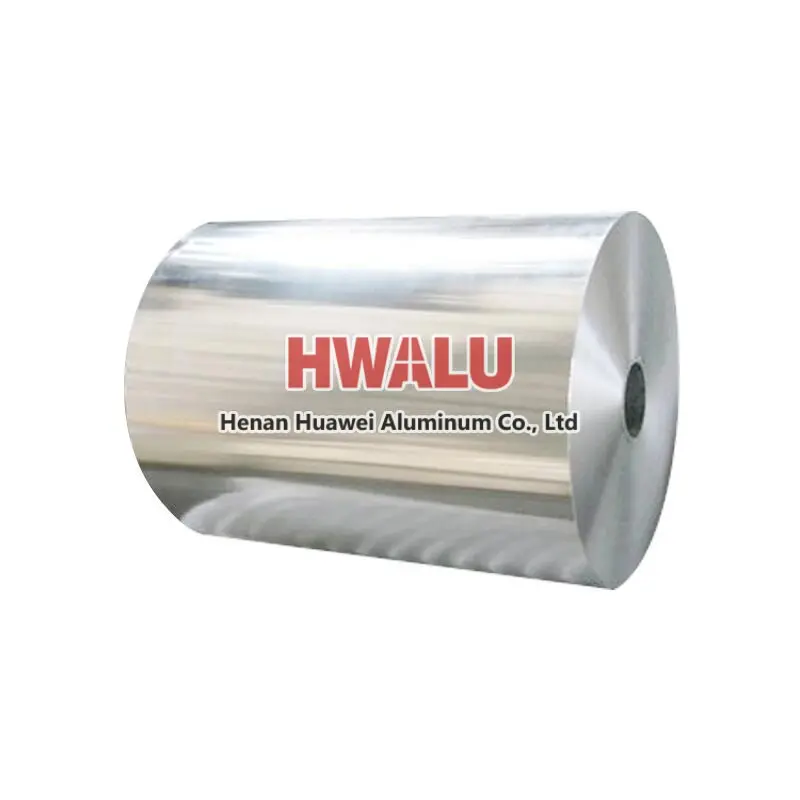What is aluminum foil for containers? Aluminum foil for containers is a type of aluminum foil specially designed for food packaging and storage. It is commonly used to make disposable food containers, trays, and pans for easy transport and for cooking, baking, and serving food. Aluminum foil for containers, often called aluminum food containers or aluminum foil food trays, is designed to meet specific requ ...
What is cable aluminum foil? Cable aluminum foil is a special type of aluminum foil used for cable structures. It is processed from aluminum alloy raw materials through cold rolling, hot rolling and other processes. Aluminum foil used in cables has excellent electrical conductivity and good corrosion resistance, especially in the telecommunications and electrical industries, playing an important role. 8011 ...
What is aluminum foil for foil board Aluminum foil for foil board refers to a special type of aluminum foil used to make foil board, also known as "foil material". Foil sheets are commonly used to package food and pharmaceuticals to protect them from air, moisture, odours, light and other external elements. Aluminum foil for foil boards is usually thicker than regular aluminum foil, usually between 0.2-0.3 mm ...
What is Aluminum Foil for Electricians Electrical aluminum foil is a special type of aluminum foil that is coated with an insulating material and is commonly used in electrical insulation applications. Its insulating layer prevents the loss of current from the surface of the aluminum foil while protecting the foil from the external environment. This aluminum foil usually requires high purity, uniformity, a ...
Alloy parameters of aluminum foil for cups Aluminium foil for cups is usually made of aluminium alloy materials with good processability and corrosion resistance, mainly including 8000 series and 3000 series. --3003 aluminum alloy Alloy composition Al 96.8% - 99.5%, Mn 1.0% - 1.5% Physical properties density 2.73g/cm³, thermal expansion coefficient 23.1×10^-6/K, thermal conductivity 125 W/(m K), e ...
Can aluminum foil be used in food containers? Aluminum foil, as a metal material, is commonly used in the manufacture of food containers. Aluminum foil containers are a popular choice for packaging and storing all types of food due to their lightweight, corrosion resistance and thermal conductivity properties. Has many characteristics. 1. Aluminum foil container has corrosion resistance: the surface of alumin ...
1. Uncoated aluminum foil Uncoated aluminum foil refers to aluminum foil that has been rolled and annealed without any form of surface treatment. In my country 10 years ago, the aluminum foil used for air-conditioning heat exchangers in foreign countries about 15 years ago was all uncoated aluminum foil. Even at present, about 50% of the heat exchange fins used in foreign developed countries are still uncoated ...
Food packaging aluminum foil is related to human health and safety, and is usually produced with specific specifications and characteristics to ensure its suitability for the food industry. The following are some common specifications of aluminum foil for food packaging: Food packaging foil alloy types: Aluminum foil used for food packaging is usually made from 1xxx, 3xxx or 8xxx series alloys. Common alloys in ...
It is a characteristic of aluminum box rolling that the thickness deviation is difficult to control. The thickness difference of 3% is not difficult to control in the production of plate and strip, but it is more difficult to control in the production of aluminum foil. As the thickness of the aluminum box becomes thinner, its micro-conditions can affect it, such as temperature, oil film, and oil and gas concen ...
The post-processing of aluminum foil is an important part of an enterprise, which is related to the yield of an aluminum enterprise and the profit point of the enterprise. The higher the yield, the higher the profit point of the enterprise. Of course, the yield rate must be controlled in every link, standardized operation, and sophisticated equipment and responsible leaders and employees are required. I don't und ...
Foil winding, aluminum foil to be tensioned, in order to maintain a certain tension, smooth, flat winding coil, the thicker the aluminum foil requires greater tension, the maximum tension of the coil winding machine is limited, exceeding the maximum tension of the machine is dangerous, the tension is too small winding coil loose, can not ensure the size requirements. Therefore, here is not to say that you want to ...
Aluminum foil has the following advantages in food packaging: Barrier property. Aluminum foil has excellent resistance to water, air (oxygen), light, and microorganisms, which are important factors in food spoilage. Therefore, aluminum foil has a good protective effect on food. Easy processing. Aluminum has a low melting point, good heat sealing, and easy molding. Can be processed into any shape according to ...








